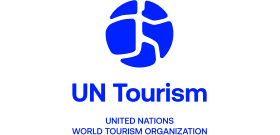 Plovdiv 2025: Where Wine Tourism Meets Art, Culture, and Sustainable Growth
Plovdiv 2025: Where Wine Tourism Meets Art, Culture, and Sustainable Growth
The recent UN Tourism Global Conference on Wine Tourism, held on 6–7 October 2025 in the historic city of Plovdiv, Bulgaria, spotlighted the powerful fusion of wine tourism, art, and culture as a dynamic engine for innovation, job creation, and regional development. Against the backdrop of Plovdiv’s rich heritage—one of the world’s oldest continuously inhabited cities and a former European Capital of Culture—the event masterfully bridged centuries-old winemaking traditions with cutting-edge contemporary trends.
Under the evocative theme, “The Art of Wine Tourism,” the conference gathered over 300 participants from 27 countries, including policymakers, industry leaders, academics, entrepreneurs, and tourism professionals. This diverse assembly explored how wine tourism can serve as a catalyst for economic growth while preserving cultural identity and fostering sustainable development, especially in rural and winemaking communities.
UN Tourism Secretary-General Zurab Pololikashvili captured the essence of the gathering, emphasizing that “taste, culture, and place come together in wine tourism.” He highlighted the sector’s evolution, noting how innovation and creativity are now shaping wine tourism’s future. By uniting policymakers and industry experts, the conference aimed to position wine tourism as a key driver of inclusive economic opportunity and cultural preservation.
Bulgaria’s Minister of Tourism, Miroslav Borshosh, reflected on the significance of hosting the event in his country. He described wine as more than a product—calling it “culture, history, and identity”—a living bond between the land and its people. For Bulgaria, the conference was both a recognition of past achievements and a springboard for sustainable growth, offering a fresh narrative to share with the world through the lens of wine and tourism.
The conference program was rich and varied, featuring high-level panels, masterclasses, and immersive site visits that showcased best practices and innovative approaches in wine tourism. Discussions focused on critical areas such as policy development, product innovation, communication strategies, and talent cultivation. These elements are essential for building resilient wine tourism sectors that can adapt to changing market demands and global trends.
A standout moment was the high-level policy session, which brought together representatives from the Ministries of Tourism of Bulgaria, Greece, and Montenegro, alongside officials from the Türkiye Tourism Promotion and Development Agency (TGA) and the UNESCO Regional Office in Sofia. This regional collaboration underscored the importance of coordinated policy frameworks to strengthen infrastructure, diversify wine tourism offerings, and enhance marketing efforts. Such cooperation is vital to ensuring that wine tourism contributes effectively to the broader goals of sustainable tourism development across the region.
For African tourism professionals, the Plovdiv conference offers valuable insights. It highlights how wine tourism can be a multifaceted tool—not only boosting economic activity but also preserving cultural heritage and fostering innovation. As African countries continue to develop their own wine regions and tourism infrastructure, lessons from this global gathering emphasize the importance of integrating tradition with modernity, investing in skills and education, and fostering regional partnerships.
Moreover, the conference’s focus on sustainability resonates strongly with Africa’s growing commitment to responsible tourism. Wine tourism’s potential to create jobs, support rural communities, and promote environmental stewardship aligns well with the continent’s development priorities. By embracing these principles, African destinations can position themselves as attractive, authentic, and innovative wine tourism hubs on the global stage.
In sum, the UN Tourism Global Conference on Wine Tourism in Plovdiv has set a compelling agenda for the future—one where art, culture, and innovation converge to unlock new opportunities in wine tourism. For Africa’s travel sector, this represents both inspiration and a call to action to harness the rich cultural and natural assets of the continent, crafting unique experiences that appeal to discerning travelers worldwide.
